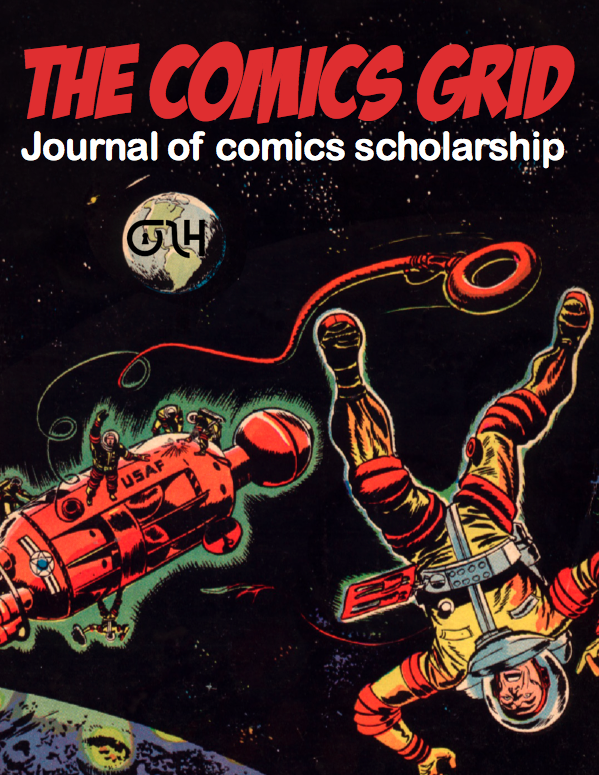Here’s a modest proposal to get a bigger conversation started about how we peer review and process research comics through the academic publishing cycle. I’m so pleased to have this article published with the The Comics Grid: Journal of Comics Scholarship, because they have been dedicated to Open Science/Humanities, and also have a robust system in place for processing graphic submissions which I could use as a model in the article itself. The Rubric I proposed in this article is available to download for free, DOI: 10.6084/m9.figshare.24456490. You can find the whole article on the Comics Grid website!
Here’s a snippet from the article:
The aim of this article is to poke and prod at how we read and evaluate research comics. I hope to see more research comics published, read more responses to research comics, and watch heated graphic debates arise with full-color rebuttals. I would like to propose a simple rubric, inspired by Michael Pagliaro’s rubric for assessing the literary quality of graphic novels (Pagliaro 2014: 41–42), which could be used as a framework for evaluating research comics in such a way that gives equal weight to the academic rigor of the visual plane. The “Form that Functions Rubric for Research Comics” combines aspects seen in the ‘best practice’ models presented in “How to Draw the Scholarly Way” (Kuttner et al. 2017) and elements adapted from Davies’ “New Choices for the Comics Creator” (Davies 2019) to direct the readers’ attention, while creating clear “form that functions” metrics for readers to consider how the visual plane contributes to the veracity, authenticity, and argument of the research. Such a rubric could be a starting point for peer reviewers or students who are evaluating a graphic proposal for the first time, or for new scholars who know how to work critically with literary comics and would like to expand to non-fictional and research comics.
I’m really looking forward to seeing what conversations develop from this!
Woock, E. A., (2023) “Rubric and Metrics for Peer Reviewing Research Comics”, The Comics Grid: Journal of Comics Scholarship 13(1). doi: https://doi.org/10.16995/cg.10179



